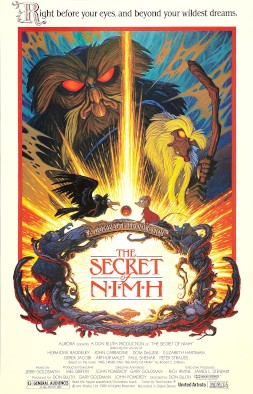Coming to Days of Being Wild after In the Mood for Love and 2046 is an interesting experience. Wong Kar-wai’s trilogy featuring the characters Su Li-zhen and Chow Mo-wan may be informal and hardly connected from one another at all, but it still works as a continuous story, first of her, then of them, then of him. So watching this first installment after seeing the second and third, it’s like a puzzle piece you didn’t quite realize was missing has been added to the larger narrative. In some way considering where it ends up it even feels like an intended prequel, the stage being seemingly set for In the Mood for Love ten years later.
Days of Being Wild is not quite the film that masterpiece is, but it’s got something of the same permeating melancholy in its’ portrayal of four interconnecting relationships that fall apart through largely the distracted indifference of one guy. That guy is Yuddy (Leslie Cheung), a reckless playboy with severe mummy issues who romances women yet refuses to indulge them or commit in any way. Su Li-zhen (Maggie Cheung) is one of his more regular affairs, a woman originally from Macau now finding her way in Hong Kong. Another is passionate dancer Mimi (Carina Lau), who harbours a toxic obsession for Yuddy. The movie also touches on the relationship Mimi has with Zeb (Jacky Cheung), Yuddy’s best friend who is in love with her, and a near romance that develops between Li-zhen and police officer Tide (Andy Lau); also Yuddy’s own complicated relationship with his maternal figure Rebecca (Rebecca Pan) who has never revealed the identity of his real mother.
All of this drama is shown with Wong Kar-wai’s characteristic melancholy moodiness. It’s set in the 1960s, but you might not know it for how rarely the outside world intrudes on these people until Yuddy’s last act journey to the Philippines. And yet that tone seems to suggest a despondence of the era, Li-zhen reminisces fondly of the Hong Kong she had been told of as a child. These are all characters existing near the lower rungs of their society too. An aura of depression cascades over the film, but it’s rather beautiful and poignant.
Wong’s direction is typically sharp and poetic, the cinematography of Christopher Doyle rich and romantic. Though not as radiant as In the Mood for Love or 2046 would be, there are certainly a fair share of resplendent visuals to take in. The ways in which Wong frames the lovers in relation to each other are stunning, a particular gorgeous shot being a close-up of Yuddy and Li-zhen lying against one another as they converse. Mimi gets plenty of lovely compositions as well, Wong being more than astute to the sexiness of his leads, as he hones in on the palpable heat off their bodies, frames them alluringly in their style and costuming, and bathes them often in a sultry green light. Of course, it helps too that he has a cast of very attractive actors.
I continue to be stunned any time Maggie Cheung is on-screen both by her beauty and her subtle performance choices. Carina Lau though is relatively new to me, and she might be the stand-out of the film, if for no other reason than the intense melodrama she is tasked with more than her co-stars. She cultivates so much empathy all throughout as the woman perhaps worst-treated by Yuddy’s bad behaviour. For his part, Leslie Cheung makes for a great antihero, a callous and irresponsible bad boy, though believably charismatic enough. Yuddy’s own story is something of a tragedy ultimately, and Cheung has very much the character of a young tragedian -I could see him playing Hamlet. And I’d be remiss not to mention Tony Leung who shows up for the final scene as the suave-seeming gambler, prepping coolly for a night at the club that Li-zhen has just come into -a scene that works as both set-up for a future relationship or just a sign of hope for the prospects of Li-zhen’s love life.
There’s a wistful romance to the title Days of Being Wild in spite of the movie itself not quite living up to the implication of those connotations. These “days of being wild” aren’t terribly fun, but I suppose that’s the point. An awfully immersive and evocative movie though.
Criterion Recommendation: The Secret of NIMH (1982)
Criterion Recommendation: The Secret of NIMH (1982)
Imagine my surprise when looking at the “Newly Added” section of the Criterion Channel homepage this month and seeing of all movies to be listed there, The Secret of NIMH. Don Bluth’s 1982 animation cult classic, his first away from Disney, is one of my personal favourite animated movies, and though there’s a lot of animation in the queue ahead of it for Criterion to induct, I think this movie is indeed quite deserving of a place. Based on the book by Robert C. O’Brien, it’s the story of a widowed mouse embarking on an adventure to save her children from the farmers’ plow by aiding a society of escaped hyper-intelligent lab rats. Designed to evoke the richness of classic Disney with just a little bit of Watership Down in its’ DNA, it creates a captivating world out of both science and fantasy, all the while telling an emotionally powerful and original story about discovering ones’ courage for the sake of the people one loves. Please, let it into the collection before Don Bluth passes!
Support me on Patreon: https://www.patreon.com/JordanBosch
Follow me on Twitter: https://twitter.com/Jordan_D_Bosch
Letterboxd: https://letterboxd.com/jbosch/



Comments
Post a Comment